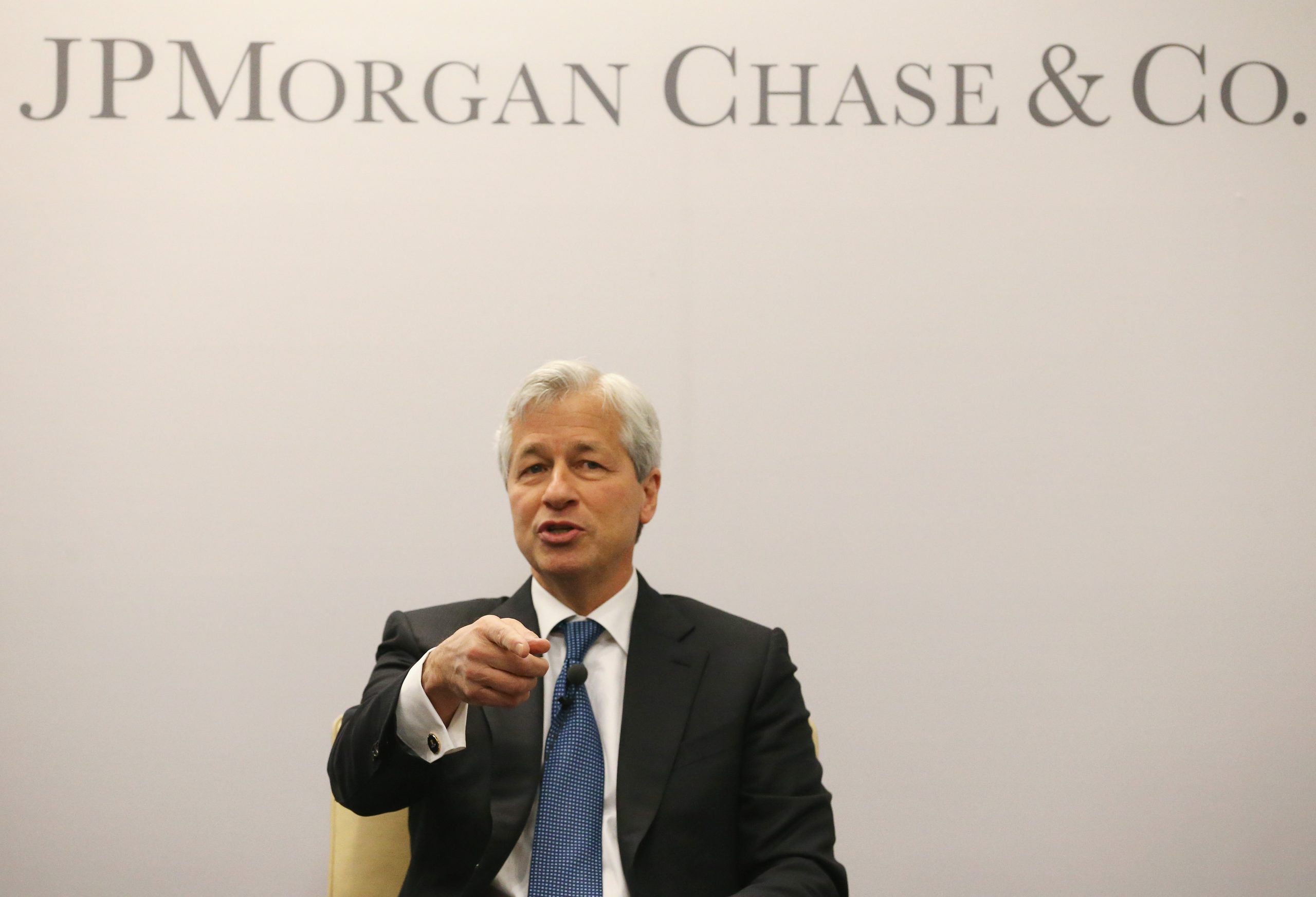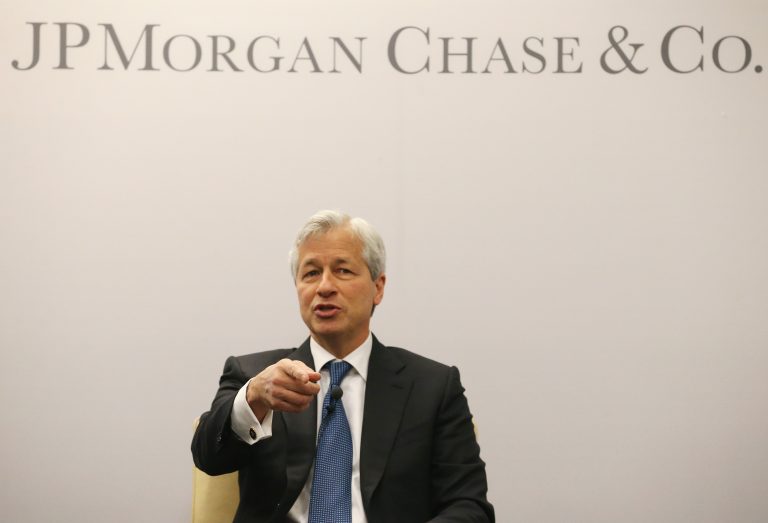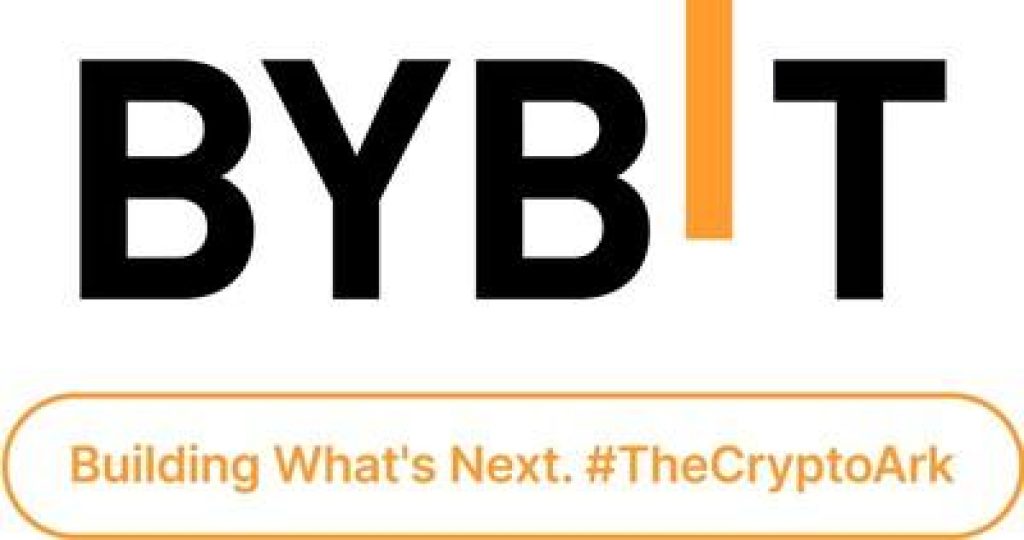JPMorgan Moves to Accept BTC and ETH as Collateral, A Major Step for Institutional Crypto Integration


According to a Bloomberg report published today, JPMorgan Chase is planning to allow its institutional clients to use Bitcoin (BTC) and Ethereum (ETH) holdings as collateral for loans by the end of 2025.
This global program targets trading desks, wealth-management accounts, and high-net-worth individuals, marking a significant evolution in how major banks are incorporating digital assets into traditional finance.
Primarily for institutional clients, including hedge funds and asset managers. It extends JPMorgan’s earlier policy introduced in June 2025 of accepting crypto-linked ETFs as collateral, now allowing direct pledges of BTC and ETH.
Register for Tekedia Mini-MBA edition 19 (Feb 9 – May 2, 2026): big discounts for early bird.
Tekedia AI in Business Masterclass opens registrations.
Join Tekedia Capital Syndicate and co-invest in great global startups.
Register for Tekedia AI Lab: From Technical Design to Deployment.
Pledged tokens will be held by third-party custodians to manage risk and ensure compliance, rather than JPMorgan taking direct custody. Clients can access fiat credit lines or structured loans against their crypto holdings, similar to using stocks, bonds, or gold as collateral. This avoids the need to sell assets, providing liquidity while retaining exposure.
Rollout expected by year-end 2025, pending final internal approvals. JPMorgan’s CEO, Jamie Dimon, has historically been skeptical of crypto—once calling Bitcoin “worse than tulip bulbs”—but the bank has pivoted amid surging client demand and a more favorable regulatory environment under the current U.S. administration.
Bitcoin recently hit record highs above $110,000, and spot BTC/ETH ETFs have amassed over $149 billion in assets since their 2024 approval. This move aligns with a wave of Wall Street adoption
Morgan Stanley plans to enable retail trading of BTC, ETH, and Solana on ETRADE by Q2 2026. BNY Mellon launched tokenized money market products with Goldman Sachs in July 2025. Fidelity, State Street, and BlackRock are expanding custody and trading services.

By treating BTC and ETH like traditional collateral, the program could unlock billions in liquidity for institutions, accelerate crypto’s mainstream integration, and signal reduced volatility risks as banks refine valuation and risk models.
Morgan Stanley, managing over $8 trillion in assets, has ramped up its cryptocurrency offerings in 2025 amid a pro-crypto regulatory shift under President Trump. This builds on earlier moves like offering Bitcoin funds to wealthy clients since 2021 and approving spot BTC/ETH ETFs in 2024.
The firm’s strategy emphasizes integrated digital asset management alongside traditional portfolios, with a focus on risk-managed exposure. Morgan Stanley removed eligibility restrictions, allowing all clients—regardless of net worth, risk tolerance, or account type—to invest in crypto funds starting October 15, 2025.

Restricted to clients with ?$1.5M in assets, aggressive risk profiles, and taxable brokerage accounts only. Initially BlackRock and Fidelity BTC/ETH funds; clients can also request any listed spot crypto ETFs. The firm is monitoring for additional products like altcoin funds.
Automated monitoring caps crypto at ~4% of portfolios (per Global Investment Committee recommendation) to prevent over-concentration in volatile assets. This extends to retirement (e.g., IRAs) and trust accounts, potentially injecting billions from retail and mass-affluent investors into crypto.
Bitcoin (BTC), Ethereum (ETH), and Solana (SOL) at launch; potential expansion to others. With Zerohash (crypto infrastructure provider) for liquidity, custody, and compliance. Morgan Stanley participated in Zerohash’s $104M Series D-2 round in September 2025, valuing it at unicorn status (~$1B).
Developing an in-house digital asset wallet for secure storage, described as the “tip of the iceberg” in broader strategy. Up to 4% “opportunistic” allocation to crypto in diversified portfolios, tailored by risk profile (0% for conservative; higher for growth-oriented).
Recently issued “Dual Directional Trigger PLUS” notes linked to BlackRock’s iShares Bitcoin Trust (IBIT) ETF, closing October 31, 2025—offering leveraged exposure with auto-call features. Competitors like JPMorgan accepting BTC/ETH as loan collateral by end-2025 and Goldman Sachs tokenized funds are following suit.
CEO Ted Pick has emphasized safe crypto integration via regulators. For clients, this means seamless liquidity and exposure without selling assets; for the market, it could drive $10B+ inflows, boosting prices and legitimacy. Retail rollout via ETRADE targets younger investors, but execution risks remain.





